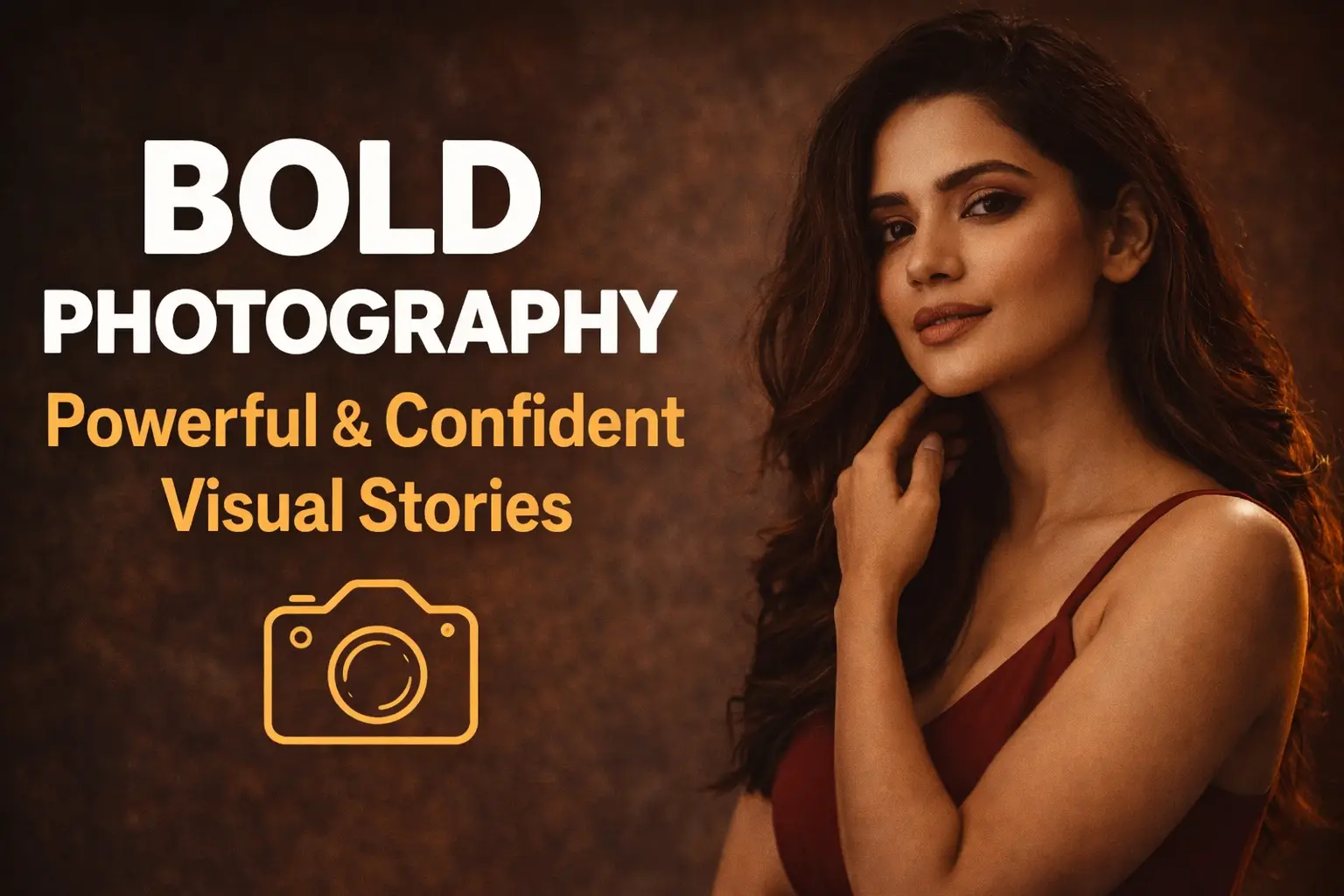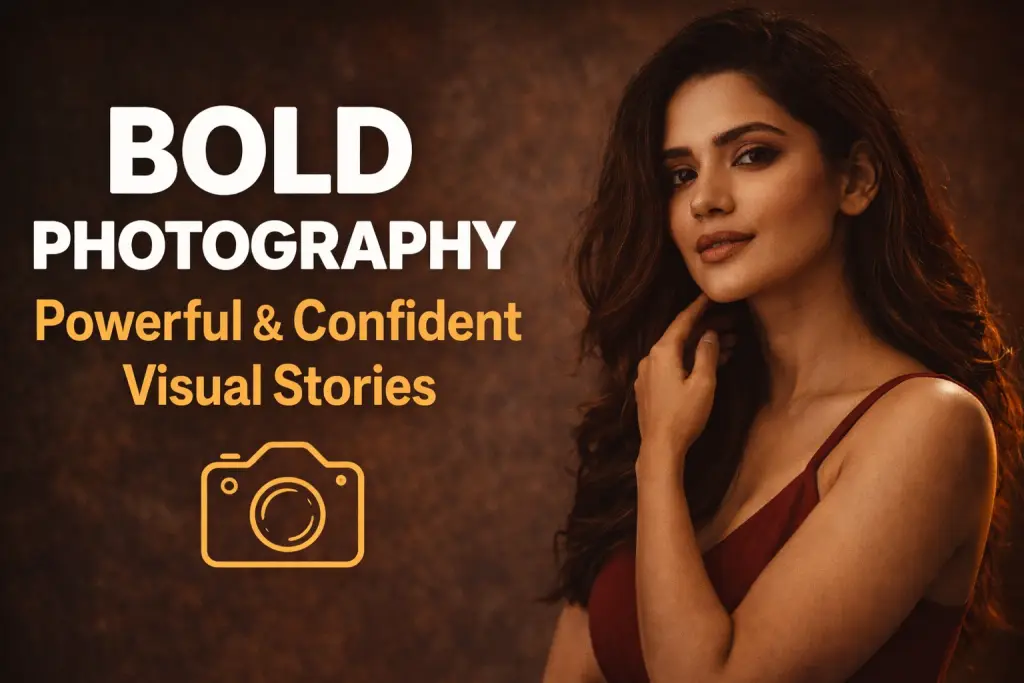Beachwear product photography requires a blend of technical expertise and creative direction. Unlike traditional studio shoots, capturing sarongs and swimwear demands attention to fabric movement, natural lighting, and vibrant backdrops. Whether you’re shooting for e-commerce, social media, or a brand campaign, this guide will help you create captivating images that resonate with audiences.
Understanding Beachwear Product Photography
Why Beachwear Photography is Unique
Unlike rigid product shots, beachwear photography focuses on flow, color vibrancy, and body contours. The way fabric interacts with sunlight, wind, and water makes it distinct from other fashion photography styles.
The Impact of High-Quality Beachwear Images
High-quality images boost customer confidence, leading to higher engagement and sales. Stunning photos highlight craftsmanship, material, and fit, making them essential for fashion retailers and brands.
Essential Gear for Beachwear Photography
Choosing the Right Camera
A camera with a high dynamic range and fast autofocus is crucial for capturing sharp images in bright outdoor settings. Recommended cameras include:
- Canon EOS R5 – Excellent resolution with advanced color accuracy
- Sony A7R IV – High megapixel count for detailed shots
- Nikon Z7 II – Versatile and well-suited for fashion photography
Best Lenses for Beachwear Shoots
Lenses play a significant role in framing and perspective. Top choices include:
- 85mm f/1.4 – Ideal for portraits with creamy bokeh
- 24-70mm f/2.8 – Versatile for both close-ups and full-body shots
- 35mm f/1.8 – Great for environmental portraits with natural depth
Tripods and Stabilization Tools
Handheld shooting introduces motion blur, especially in long-exposure beach shots. A lightweight, sturdy tripod like the Manfrotto Befree Advanced helps maintain stability.
Reflectors and Diffusers
Beach lighting can be harsh. Reflectors help bounce sunlight onto shadowed areas, while diffusers soften intense highlights. A 5-in-1 reflector kit offers versatility.
Mastering Natural Light for Beachwear Photography
Best Time of Day for Shoots
- Golden Hour (Sunrise & Sunset): Soft, warm lighting enhances colors and textures.
- Overcast Days: Diffused light reduces harsh shadows, making fabric details more visible.
Managing Harsh Midday Sunlight
Using a scrim or shooting in shaded areas helps control strong contrasts, preventing overexposure.
Backlighting and Silhouette Effects
Positioning the subject between the camera and the sun creates a natural rim light, adding depth and a dreamy feel.
Styling Beachwear for Captivating Product Shots
Choosing the Right Colors and Textures
Bold colors pop against oceanic backgrounds, while soft pastels create a serene aesthetic. Pairing textured sarongs with smooth swimwear adds visual contrast.
Accessories and Props for Dynamic Compositions
- Sunglasses, hats, and jewelry complement the outfit.
- Beach umbrellas and surfboards add storytelling elements.
Coordinating Model Poses with Fabric Flow
Sarongs and lightweight fabrics move naturally with the wind. Encouraging dynamic poses like twirling or stepping forward enhances motion and depth.
Composing the Perfect Beachwear Shot
Framing and Composition Techniques
- Rule of Thirds: Keeps the subject well-balanced within the frame.
- Leading Lines: Utilize waves, boardwalks, or shorelines to draw attention to the model.
- Negative Space: Enhances minimalistic, high-end branding aesthetics.
Capturing Details and Textures
Close-ups of fabric textures, stitching, and embellishments help showcase product quality.
Motion Photography for Fluidity
Using a fast shutter speed (1/1000s or higher) freezes movement, while a slower shutter speed (1/100s) captures fabric sways beautifully.
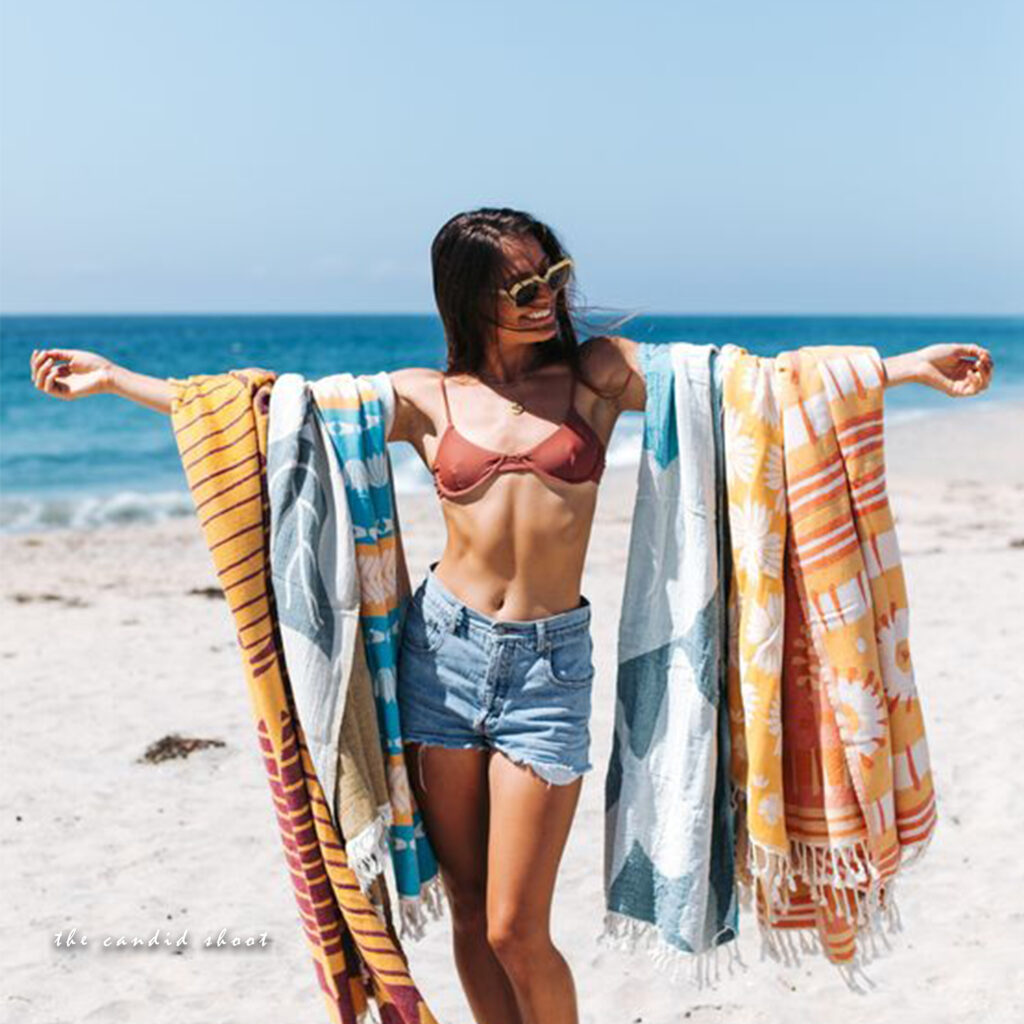
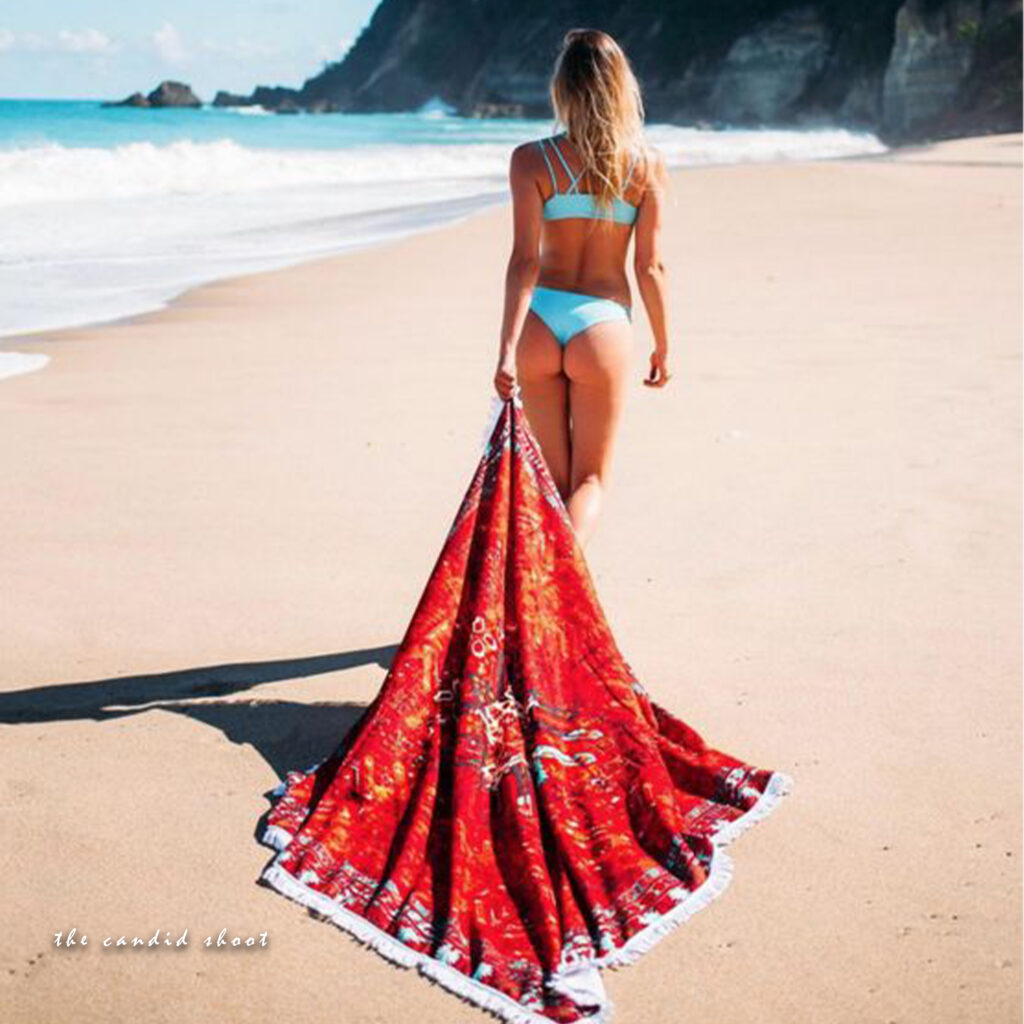
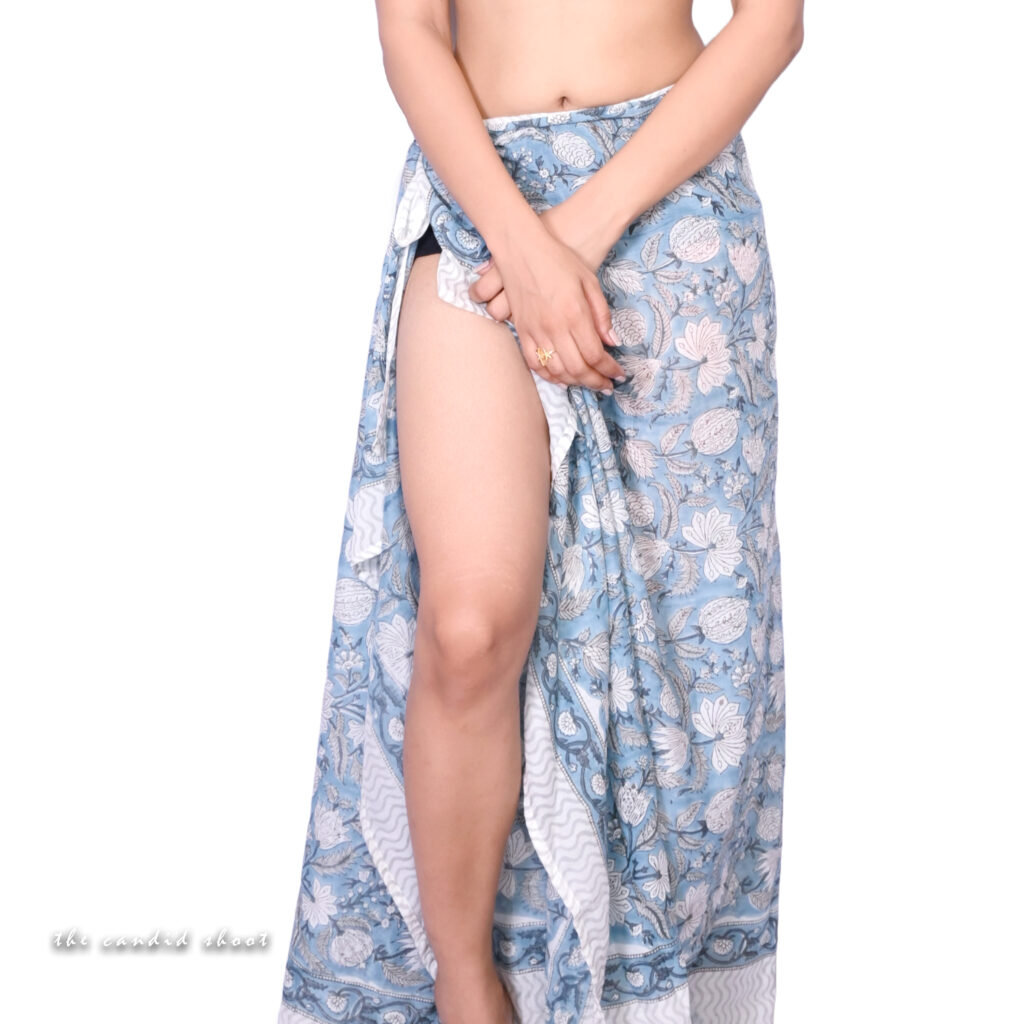
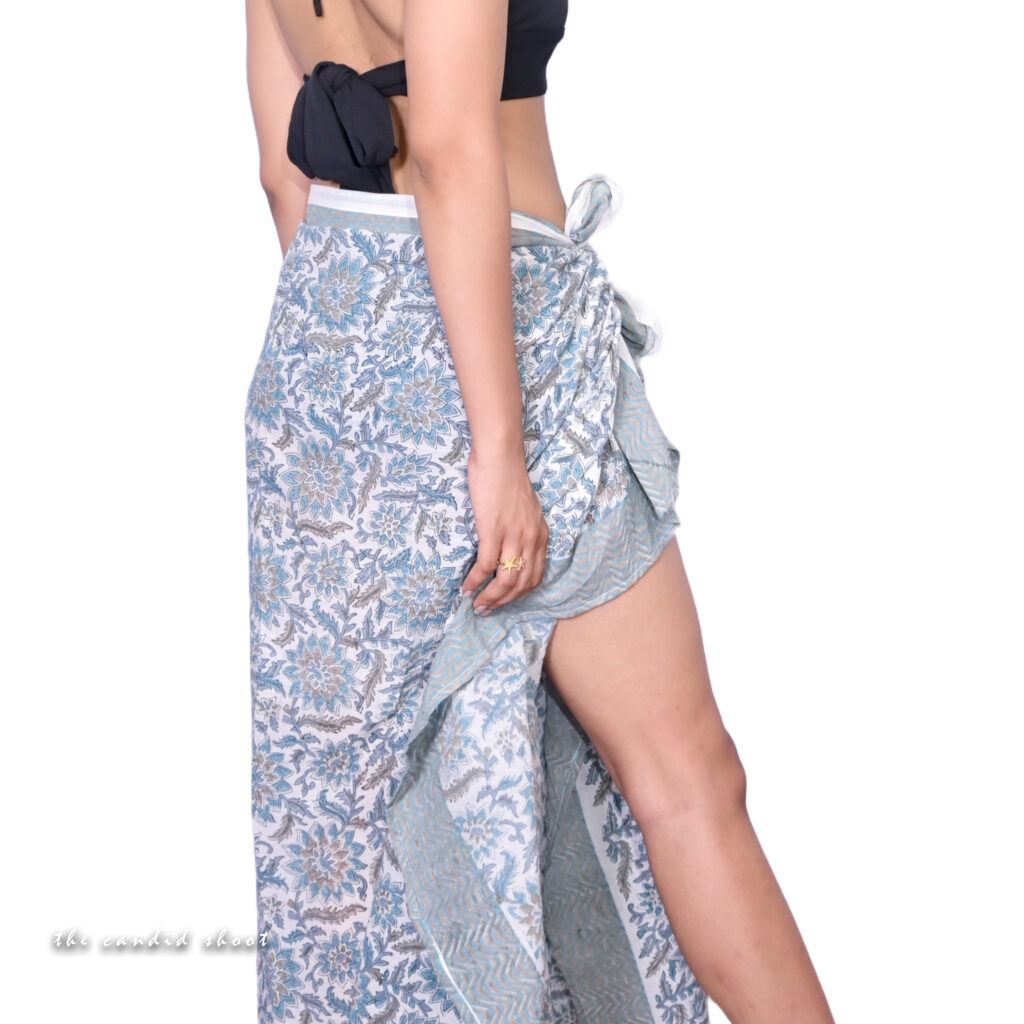
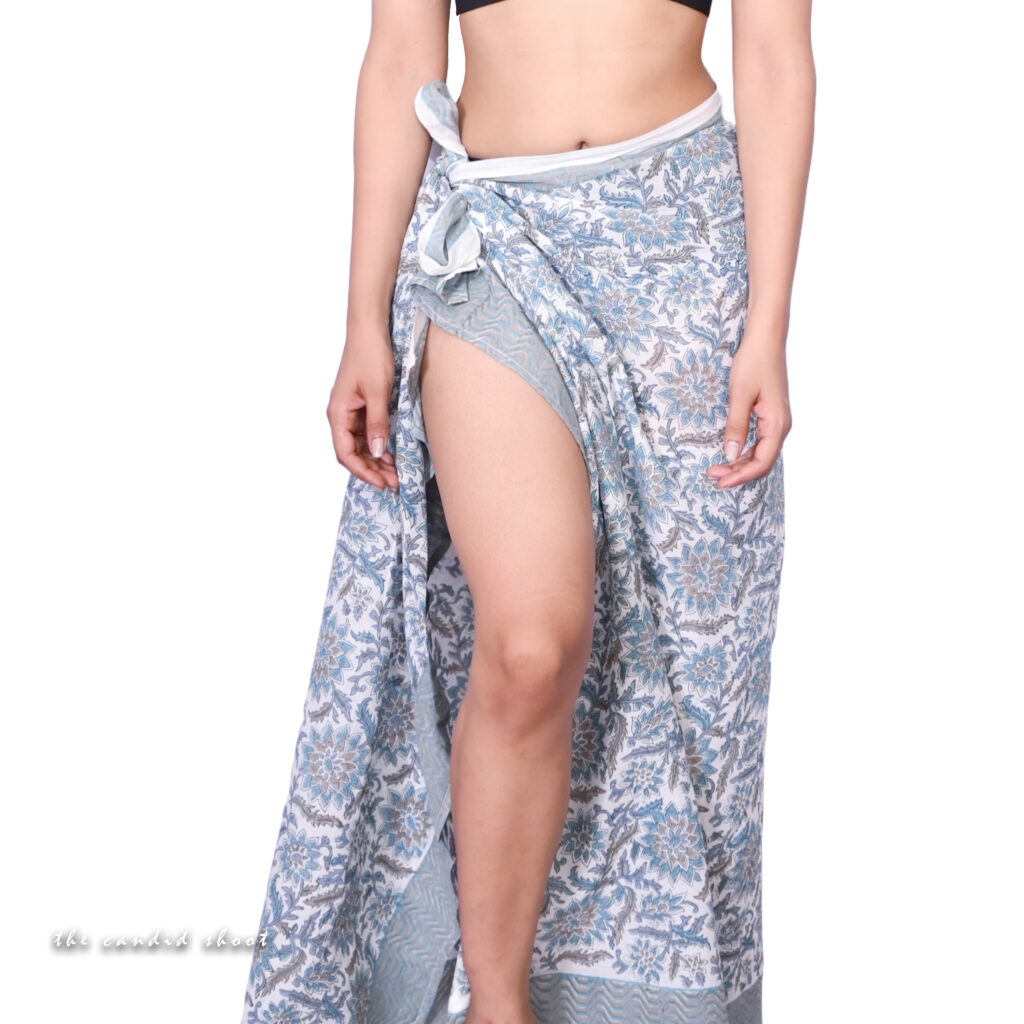
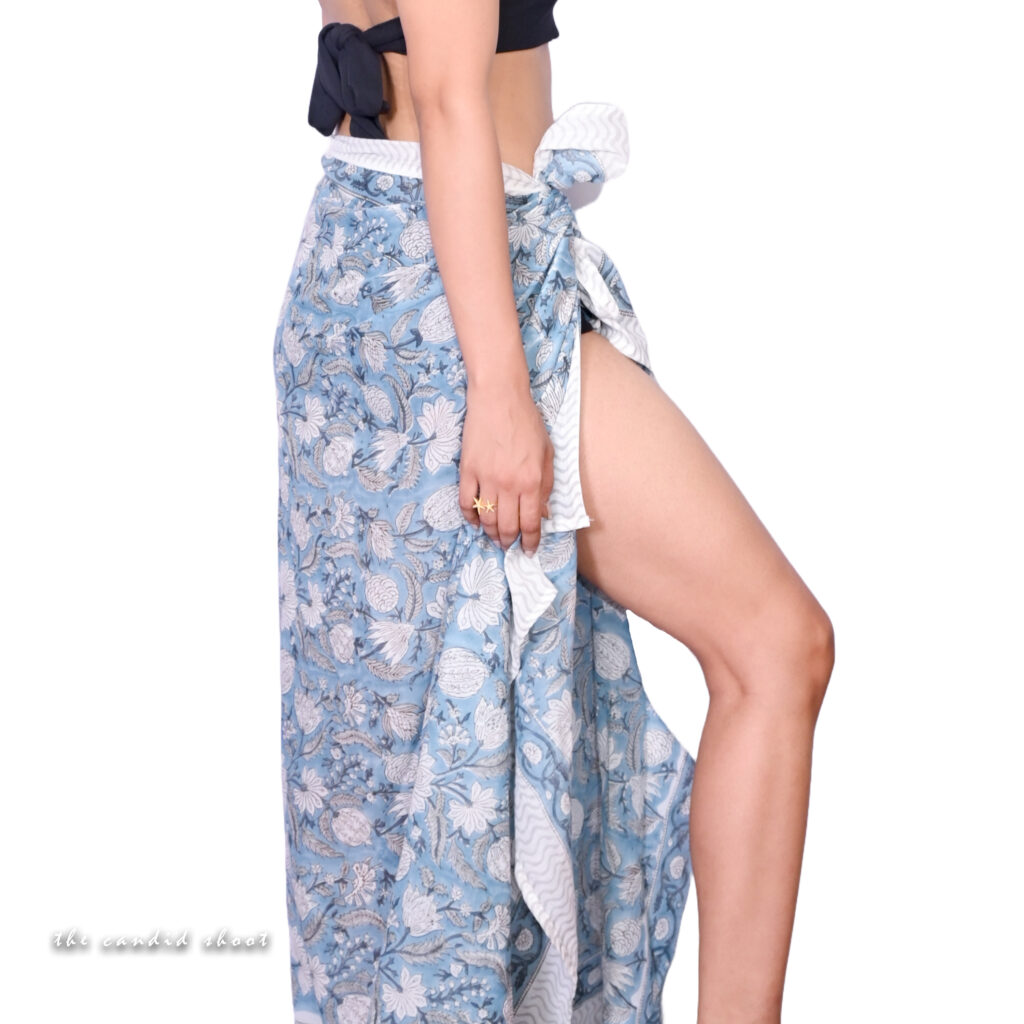
Editing Beachwear Product Photos for a Polished Look
Adjusting White Balance and Color Correction
Sunlight affects color tones, requiring post-processing adjustments to maintain skin tones and fabric vibrancy.
Enhancing Details with Sharpness and Contrast
A subtle clarity boost in Adobe Lightroom refines edges without over-processing.
Retouching Imperfections While Maintaining Natural Textures
Light blemish removal and skin smoothing enhance the final image while keeping it authentic.
Common Challenges and How to Overcome Them
Dealing with Wind and Unruly Fabric Movement
Using strategically placed clips or working with wind direction minimizes disruptions.
Preventing Sand and Water Damage to Equipment
Keeping gear in sealed dry bags and using UV filters protects lenses from sand scratches and water droplets.
Avoiding Overexposed Highlights and Deep Shadows
Exposing for the brightest parts and adjusting shadows in post-production helps balance lighting.
Conclusion
Beachwear product photography blends technical skill with creative execution. By mastering natural light, optimizing camera settings, and styling products strategically, you can produce high-impact images that elevate brand aesthetics. Experiment with movement, composition, and post-processing to refine your craft and create visuals that captivate audiences. Whether for a fashion campaign or e-commerce, stunning beachwear photography sets brands apart in the competitive fashion industry.
-
Vivo X300 Pro Photography Kit: Next-Gen Mobile Imaging
-

Empowerment Through Boudoir Photography: The Candid Shoot
-

Jaipur’s Favorite Destination for Couple Shoots | The Candid Shoot
-
Vivo X300 Pro Photography Kit: Next-Gen Mobile Imaging
Discover the complete vivo X300 Pro photography kit guide with in-depth camera analysis, real-world case studies, portrait techniques, cinematic workflows, and pro-level tips. Learn how vivo X300 Pro transforms mobile photography for creators, influencers, and studio professionals. The vivo X300 Pro — Redefining Mobile Imaging for Creators Why the vivo X300 Pro Deserves a Dedicated
-
Empowerment Through Boudoir Photography: The Candid Shoot
Boudoir Photography as Empowerment Boudoir photography has evolved far beyond traditional notions of intimacy or sensuality. Modern boudoir photography is about empowerment, confidence, and self-expression, not merely performing for the camera. At its heart, boudoir photography is a visual dialogue between the subject and themselves, mediated by a professional photographer. It provides a private, safe
-
Jaipur’s Favorite Destination for Couple Shoots | The Candid Shoot
Why Couple Shoots Matter More Than Ever Couple shoots have evolved far beyond posed photographs and forced smiles. Today, couples look for experiences that feel natural, meaningful, and reflective of who they are together. A couple shoot is no longer about perfection. It is about presence, connection, and shared emotion. At The Candid Shoot, we
-
Bold Shoot Photographer with Studio in Jaipur | The Candid Shoot
The phrase “bold shoot photographer” often triggers assumptions—many of them incomplete, outdated, or shaped by stereotypes. In reality, bold photography has evolved far beyond shock value or surface-level aesthetics. Today, bold shoots represent self-expression, body confidence, emotional honesty, and artistic courage. At The Candid Shoot, bold photography is not about exposure—it is about expression. It
-
Styling Tips for Maternity Shoots: Looking Timeless, and Confident
Styling as the Silent Storyteller in Maternity Shoots Maternity shoots are not simply about documenting pregnancy. They are about honoring a season of transformation—physical, emotional, relational, and often spiritual. Styling plays a foundational role in how that transformation appears, feels, and endures through photographs. When people look back at maternity photographs years later, they rarely

